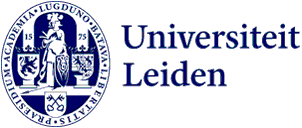
Cleveringa professor Gert Oostindie: ‘We stood up for our own freedom but ignored that of others’
Now that war is once again raging in Europe, the question of when you need to stand up against injustice has become more relevant than ever. In his Cleveringa lecture on 24 November historian Gert Oostindie will discuss why colonial domination was not regarded as an issue in Leiden for a long time.
For many years, Oostindie would hurry to the Academy Building on 26 November to take part in the procession to welcome the new Cleveringa professor. He would then take his place on the hard wooden bench to listen to the accounts of war situations and wonder whether he himself – given the personal risk – would speak out, in the knowledge that his family was waiting for him at home. The Academy Building is the place where Jewish Professor Eduard Meijers was due to give his lecture on 26 November 1940, had the German occupiers not dismissed him and other Jewish colleagues. Dean of the Law Faculty Rudolph Cleveringa appeared that day in Meijers’ place and delivered his historic protest speech in which he defended his mentor Meijers. Cleveringa was arrested the next day and was held until the start of August 1941 at ‘Orange Hotel’, the prison in Scheveningen.
From Cleveringa’s protest speech:
‘It is this Dutchman, this noble and true son of our people, this human being, this father of students, this scholar whom the invader, who currently dominates us as an enemy relieves of his position! I said I would not speak of my feelings; I will keep to this promise, although they threaten to spill like molten lava through all the fissures which I at times have the feeling, could open up in my head and in my heart, under their pressure.’
This year, it is Oostindie himself who will give the Cleveringa lecture on 24 November. From the bench to the lectern: what does he think of that? ‘I feel exceptionally honoured. The protest speech is an iconic event in the University's history, and it is a source of much food for thought, about academic but also individual responsibilities.’ He holds this annual tradition dear, but it is important to remain critical. ‘The risk with these kinds of meetings is that they become self-congratulatory about Leiden performing so well in the war. Complacency can be something of a Leiden sentiment.’

Decolonisation war
There is one subject that he believes has not received proper attention in all the Cleveringa lectures since 1970: colonialism and in particular the violent war waged in Indonesia in 1945-1949. Following years of research, earlier this year 'his' KITLV (Royal Netherlands Institute of Southeast Asian and Caribbean Studies) together with the NIMH and NIOD research institutes presented the study titled Over de grens ('Over the border'), which contains some painfully hard conclusions: the Netherlands made structural use of extreme violence, and tried to cover it up.
His lecture will be about how the Leiden University community regarded that other war, and colonialism generally. Oostindie: ‘The approach is courage and disregard. On the one hand, I admire the courage of scholars like Cleveringa in standing up to the Nazis, and on the other, I am amazed at the disregard for the right to freedom of people in the colonies. Why weren't more individual scholars openly critical of the lack of freedom in the colonies? What were Cleveringa’s thoughts about this when in 1945 he thanked the many Indonesian students for their resistance work in the Netherlands?’ So far, Oostindie, who is also conducting research, has no answer to this question.
Indologist programme
Oostindie does want to mention the relationship between the University and the colonial apparatus. Leiden had an Indology programme that prepared Dutch and Indonesian officials for their work in the colonies. ‘Leiden made the case that between 1900 and 1940 this was more progressive and ethically oriented, but at the same time it contributed to the colonial system. Of course, it's easy to talk with hindsight: at that time, speaking out against colonial domination would have taken a lot of courage. I have no intention of moralising – that’s not my job as a historian – but I am aware that, with the exception of a very few critics, the injustice of colonial domination was not regarded as an issue in Leiden for a long time. I’m not saying that in 1945 the University should have made a political statement along the lines of “Give Indonesia its freedom”; the University is an institution and it can’t spend all its time making political statements.’
‘It may be that later generations will say that we in Leiden should have spoken out more clearly on climate change.'
‘Take a broader view’
In 2017, he and Karwan Fatah Black published the guidebook Sporen van Slavernij (‘Traces of Slavery’) about the city of Leiden and how the University dealt with slavery over several centuries. The conclusion was that Leiden scientists and administrators were generally indifferent to this issue. ‘It’s good to sometimes step back take a longer view, and ask yourself: how do you want to look back years later on what your reaction was to an important issue.'
A few days after the presentation of the decolonisation study, a bloody war broke out in Europe following the invasion of Ukraine by the Russians. How does he regard this? ‘I see a lot of parallels with earlier colonial wars and I’m seriously concerned. Russia has always been a colonial power and what we’’re seeing now is a vindictive and violent colonial attack. Sadly, that's nothing new, and as well as a lot of differences, I also see parallels with the Dutch efforts to reoccupy Indonesia in 1945. Besides that, and this is something that applies in all wars: in the heat of the conflict, ethical norms all too easily go out of the window.’
Text: Linda van Putten
Photos: Monique Shaw
